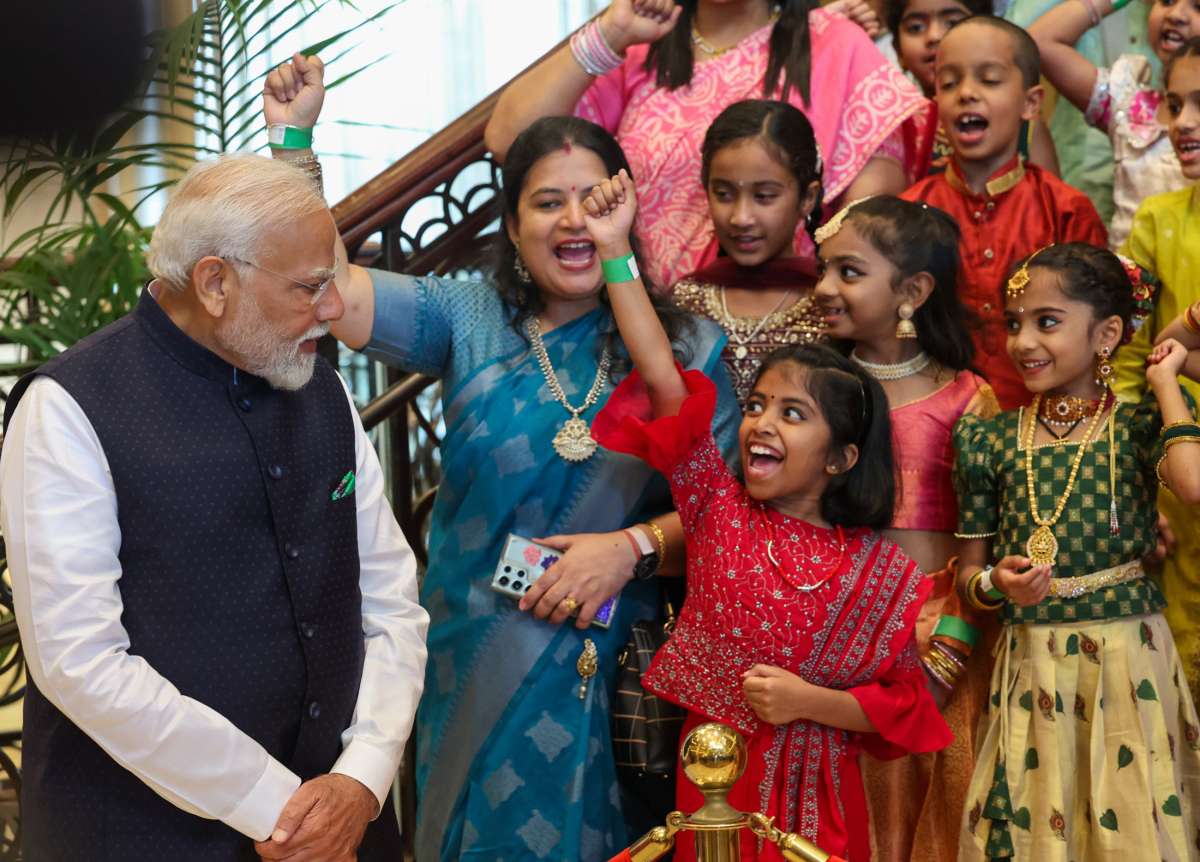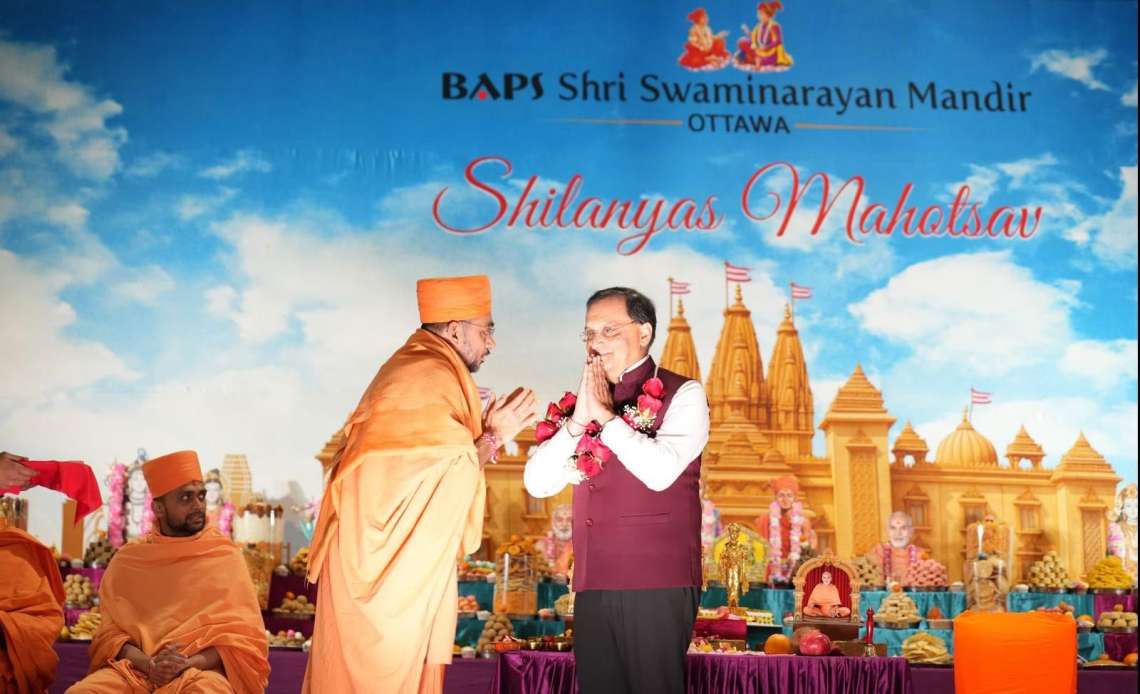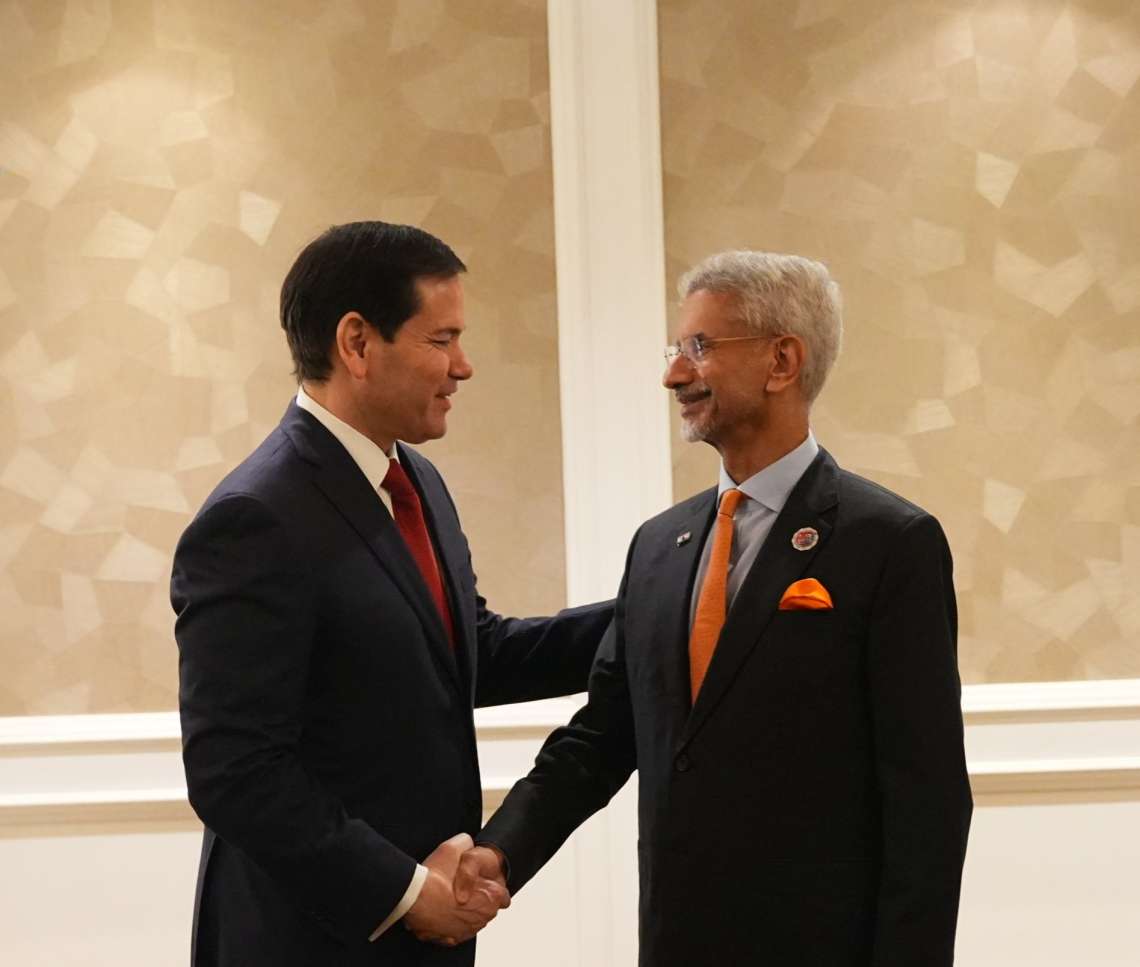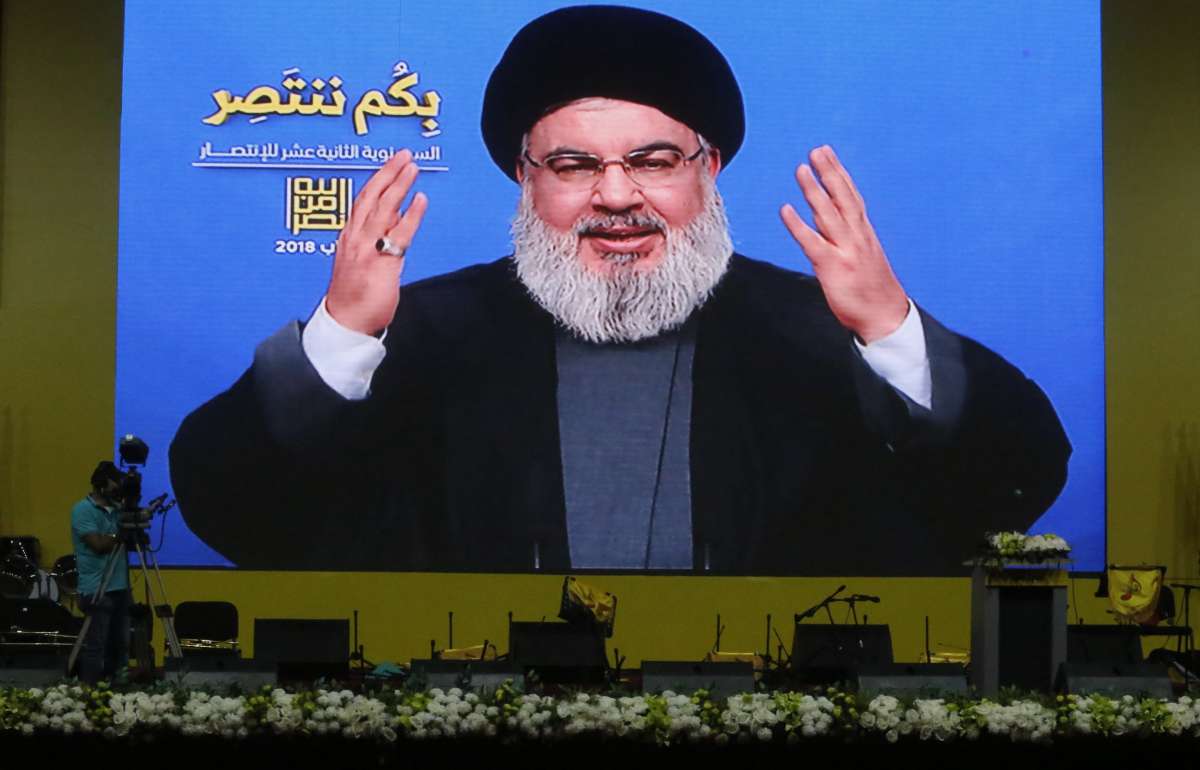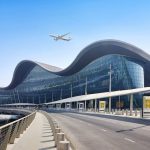There are around 9 million Indian expatriates who act like bridge between India and the Gulf nations….reports Asian Lite News
Prime Minister Narendra Modi addressed members of the Indian community in Abu Dhabi during his two-day visit to the UAE on February 12-13, 2024, signalling clearly the importance that India gives to the diaspora who accounts for 3.5 million in the Gulf country.
Acting like a bridge between host countries and India, the diaspora has been a factor of strength and source whose impact can be seen across length and breadth of economy, trade and investment and foreign money reserves.
Indian Expatriates in the UAE
The Indian expatriate community is the largest ethnic community in the UAE constituting 30% of the country’s population. The Indian community members — from managers, doctors and technicians to engineers, IT experts and chartered accountants or business tycoons — have left an indelible mark on the Gulf nation’s social and economic life.
Their presence is felt in all major sectors like construction, healthcare, retail, financial services, manufacturing, transport, hospitality, and the entire service sector.
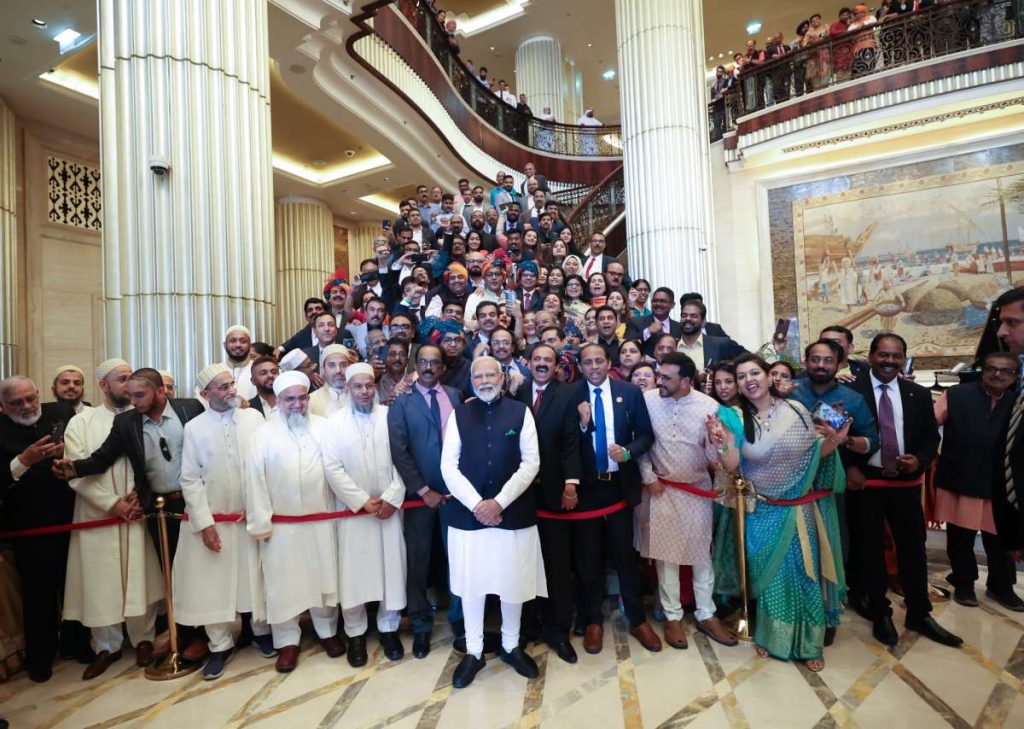
Of the total members of the Indian community in the UAE, approximately 20% live in Abu Dhabi and the rest in six northern Emirates including Dubai.
Indians’ connection with the UAE dates back several centuries; trade and commerce were the major reasons for such linkages. The 20th century brought an influx of Indian workers, especially after the discovery of oil in the 1960s.
Expansion of the oil industry and the growth of free trade in Dubai led to a surge in Indians’ arrival in the UAE in the 1970s and the 1980s. In the 1990s, a large number of Indians, particularly professionals, also headed for the UAE.
These professionals, around 15% of the total Indian community, are respected for their competence and sense of discipline. Interestingly, some of them have become accomplished entrepreneurs.
Yussuff Ali MA of the famous Lulu Group, Ravi Pillai of RP Group and Micky Jagtiani of Landmark Group are some of key members of the Indian diaspora who are contributing to the growth of the economy in the UAE.
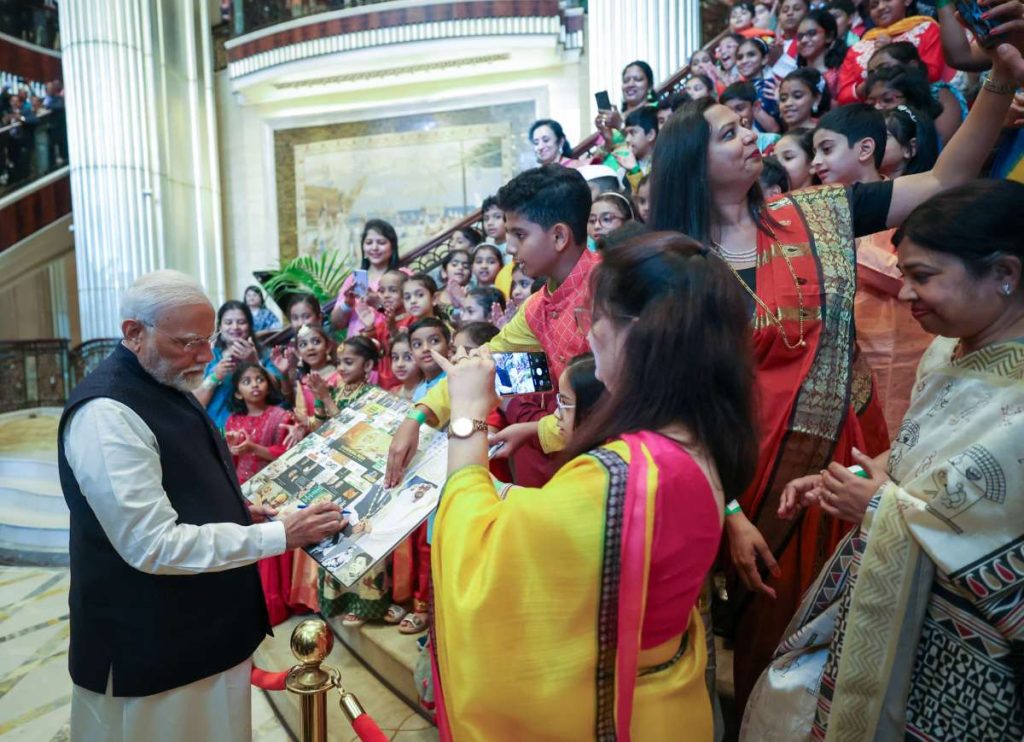
Indian Community in Qatar
There are over 800,000 Indian nationals residing in Qatar. They comprise the largest expatriate community in Qatar and are engaged in a wide spectrum of professions including medicine; engineering; education, finance; banking; business; and media apart from a large number of blue-collared workers.
They are highly regarded for their honesty, hard work, qualifications and contribution to the development and progress of Qatar.
The Indian Cultural Centre (ICC) is the apex body of the Indian expatriate community functioning under the patronage of the Embassy of India for the advancement of social and cultural activities of the Indian community in Qatar.
Indian Community in Saudi Arabia
The Indian community in Saudi Arabia numbers at more than 2.4 million and is a living bridge between the two countries. The Indian diaspora is widely respected in the Kingdom for their contributions in the development of Saudi Arabia.
The contributions made by the Indian community to the development of Saudi Arabia are well acknowledged.
In February 2022, an Agreement on Skill Verification Program was signed between NSDC, Indian Ministry of Skill Development and Entrepreneurship and Takamol holding, Saudi Ministry of Human Resources and Social Development.
Since then, the Skill Verification Program has also been initiated between India and Saudi Arabia. India and Saudi Arabia have also signed Agreement for Domestic Sector Workers in the year 2014 and Agreement for General Category Workers in 2016.
Indian Community in Bahrain
The Indian community in Bahrain constitutes 30% of total population and is the largest expatriate community in the country.
The Indian community has created a substantial, visible imprint on the social milieu of Bahrain. The presence of a large Indian community in Bahrain constitutes an important link between our two countries.
The Kingdom of Bahrain has been exceptionally friendly to India and Indians. The presence of around 350,000 Indians on its soil speaks for the goodwill that Indians enjoy in Bahrain.
More than 65% of the total Indian expatriates in Bahrain work in the construction sector. There are a sizable number of doctors, engineers, chartered accountants, bankers, managers, and other professionals who play a vital role in Bahrain’s economic development.
There is hardly any established Bahraini business organization that does not have a senior or middle level Indian employee playing an important role in its operations. The top Bahraini business houses, banks and finance companies have Indians in their senior or middle management cadres.
It is a known fact that the Indian expatriate workforce is preferred over expatriate communities from other nationalities due to their work ethics, integrity and apolitical approach.
The Bahraini leadership publicly acknowledges their contributions to the development and growth of Bahrain and has been forthcoming in ensuring safety and welfare of the Indian community in the country.
Throughout the history of Bahrain, there are inevitable and numerous signs of Indian connection starting from Dilmun civilization in Bahrain to the Indus Valley civilization in India.
Indians are known to have come to Bahrain as early as 3000 BC when ships plied between Harappan settlements, Oman and Bahrain enroute to Mesopotamia in pursuit of trade. Ancient Bahraini traders are believed to have carried out flourishing trade of Bahraini pearls with spices from India.
In recent times, Indian merchants established themselves in Bahrain towards the last quarter of the nineteenth century. Others moved to Bahrain from Baghdad and Basra.
These merchant families came from the province of Sindh and Kathiawad region of Gujarat. By around 1925, nearly 2500 Indian families had settled in Bahrain. Most of them were involved in small-time retailing.
The discovery of oil in 1932 led to immigrant manpower gravitating towards the oil industry and its’ off-shoot development activities. With the subsequent expansions of the Bahraini economy Indians started immigrating to Bahrain to start business or take up jobs as managers, salesmen, assistants, workers.
Many of Bahrain’s most prominent figures have close Indian connections. When Bahrain was a British protectorate, Indian Rupee was a legal tender in the country (100 Phil is still called by native Bahrainis as One Rupee).
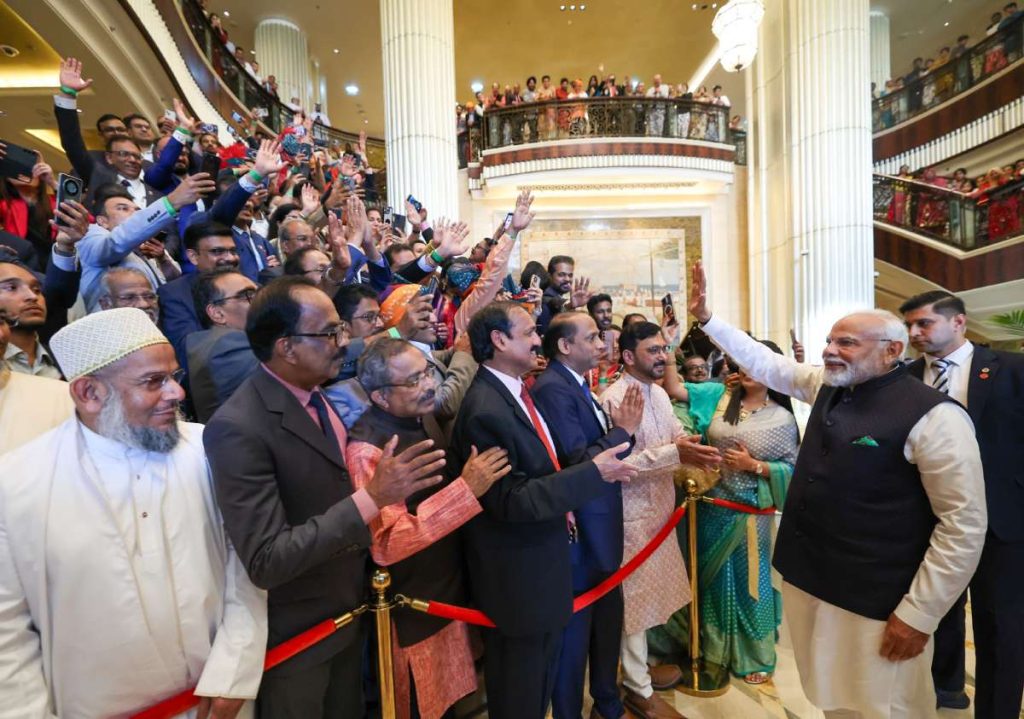
Indian Expatriates in Oman
The Indian diaspora is the second-largest diaspora in Oman after Bangladesh. Approximately 6.8 lakh Indian-origin community members live in Oman. The majority of them are blue collar workers (both unskilled and semi-skilled).
A small percentage comprises professionals like doctors, engineers, chartered accountants, teachers, managers, businessmen etc. At the end of November 2023, there were 527,108 Indian workers in Oman.
Indian Expatriates in Kuwait
The Indian community is the largest expatriate community in Kuwait, numbering about 9.78 lakh (9,77,897 as per statistics released by Ministry of Interior of Kuwait on March 27, 2023).
Though a sizable number of Indian expatriates are working as blue-collar workers, there are also professionals like engineers, doctors, chartered accountants and IT experts who are respected for their professional ability, ethics and discipline.
The maximum numbers of Indians are from the following States in descending order – Kerala, Andhra Pradesh, Telangana, Tamil Nadu, Rajasthan, UP, Maharashtra, Gujarat. Most of the nurses are from Kerala whereas female domestic workers are from Andhra Pradesh and Telangana.
A large number of construction workers are from Rajasthan. The Bohra community (approximately 20000-25000) is largely from Maharashtra. There is a small community from Bengal, Bihar and Orissa. Among the north-eastern states, there is again a small community mainly from Assam. There are some members from Punjab and Haryana as well (mainly farm-workers).
Conclusion
For Indians, Gulf countries have been key destinations of their employment and business. In fact, discipline, dedication and professional skills are major reasons why Gulf employers have preferred Indian community members over others for employment. Today, they have become a source of development and growth of the Gulf countries. However, more than this, what makes New Delhi proud of their diaspora is their working as a significant bridge between Gulf countries and India. (India News Network)
ALSO READ: India, UAE ink multiple MoUs


